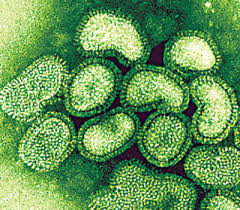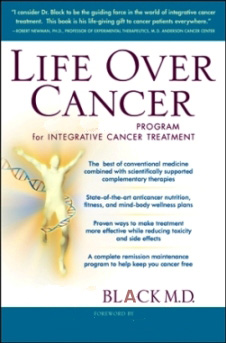Swine Flu: Information for Concerned Parents and Caregivers
What is H1N1 (swine flu)?
H1N1 (swine flu) is a type influenza (flu) virus that causes respiratory disease that can spread between people. Most people infected with this virus in the United States have had mild disease, but some have had more severe illness, and there has been at least one death. Young children, pregnant women, and people with chronic diseases like asthma, diabetes, or heart disease may be at higher risk for complications from this infection. More information about who may be at higher risk will be available when more is known about the disease. There are steps you can take to protect your family and to know when to seek medical care.
What are the symptoms?
In most children, the symptoms of H1N1 (swine flu) are similar to the symptoms of regular flu. They include: |
 |
Swine Flu: Information for Concerned Parents and Caregivers |
|
|
- Fever
- Cough
- Sore throat
- Body aches
- Headache
- Chills and fatigue
- Occasionally, vomiting and diarrhea
|
Most people think of children when they hear the term attention deficit hyperactivity disorder. But 30%-70% of kids with ADHD continue having symptoms when they grow up. People with ADHD have an imbalance of neurotransmitter activity in areas of the brain that control attention. In adults, the inability to stay focused can derail careers, ambitions, and relationships. Many adults don’t realize they have the disorder, leaving them mystified about why their goals always seem to slip out of reach |
News |
Features |
|
*ADHD Symptoms |
| * Low BP Risky for Heart Patients? |
| * Cancer: Minorities in More Pain |
| * Tongue Exercises for Sleep Apnea |
* Are Drug-Coated Stents Safe?
The BlackMD News Center |
|
* Swine Flu Center: News and Info |
| * Healthy Gifts for Mom |
| * Health Benefits of Asparagus |
* How Physical Therapy Helps MS
* 9 Painful Symptoms of Depression
.Healthy Living A-Z |
|
 |
Young children may not have typical symptoms, but may have difficulty breathing and low activity. Little is known about how H1N1 (swine flu) may affect children. However, we think the infection may be similar to other flu infections. Typically, flu infections cause mild disease in children, but children under 5 years old are more likely to have serious illness than older children. Although rare, severe respiratory illness (pneumonia) and deaths have been reported with flu infections in children. Flu infections tend to be more severe in children with chronic medical conditions.
How to keep from getting it?
Flu viruses spread from person to person mainly through the coughing or sneezing of a sick person. Flu virus may also be spread when a person touches something that is contaminated with the virus and then touches his or her eyes, nose, or mouth. We think H1N1 (swine flu) spreads the same way as other flu viruses. CDC is in the process of developing vaccine to protect us against H1N1, but there are everyday actions that can help prevent the spread of germs that cause respiratory illnesses like H1N1:
- Teach your children to wash their hands frequently with soap and water for 20 seconds. Be sure to set a good example by doing this yourself.
- Teach your children to cough and sneeze into a tissue or into the inside of their elbow. Be sure to set a good example by doing this yourself.
- Teach your children to stay at least six feet away from people who are sick.
- Children who are sick should stay home from school and daycare and stay away from other people until they are better.
- In communities where H1N1 has occurred, stay away from shopping malls, movie theaters, or other places where there are large groups of people.
Blogs
|
|
|
- "My child sticks to me like Velcro!"
- "Going bald or something else?"
- "Eating large amounts of candy again"
|
|
- How to Lighten Up Meatloaf?
- Should I Take Melatonin to Help Me Sleep?
- "Tired of being stressed out"
|
|
|
| get answers from BlackMD |
- What Is a Pandemic?
- Which Sunless Tanners Work Best?
- What Are Health Benefits of Green Tea?
- Why Do I Sweat So Much?
- What Drugs Treat Rheumatoid Arthritis?
- What Are My Breast Implant Options?
- Can Bacon Be Part of a Healthy Diet?
- How Do I Treat Bug Bites?
- How Much Sun Is Too Much?
|
|
What to do if your child is sick:
- Unless they need medical attention, keep children who are sick at home. Don’t send them to school or daycare.
- Have them drink a lot of liquid (juice, water, Pedialyte).
- Keep the sick child comfortable. Rest is important.
- For fever, sore throat, and muscle aches, you can use fever-reducing medicines that your doctor recommends based on your child’s age. Do not use aspirin with children or teenagers; it can cause Reye’s syndrome, a life threating illness.
- If someone in your home is sick, keep him or her away from those who are not sick.
- Keep tissues close to the sick person and have a trash bag within reach for disposing used tissues.
If your child comes in contact with someone with H1N1, ask your doctor if he are she should receive antiviral medicines to prevent getting sick from H1N1.
If your child experiences any of the following warning signs, seek emergency medical care:
- Fast breathing or trouble breathing
- Bluish or gray skin color
- Not drinking enough fluids
- Not waking up or interacting
- Being so irritable that he or she does not want to be held
- Not urinating or no tears when crying
- Their symptoms improve but then return with fever and worse cough
For more information call 1-800-CDC info, or go to http://cdc.gov/swineflu
- Links to non-federal organizations are provided solely as a service to our users. These links do not constitute an endorsement of these organizations or their programs by CDC or the federal government, and none should be inferred. CDC is not responsible for the content of the individual organization Web pages found at these links.






